Opening + Competition Screening 1
Saturday, 7. October, 19pm

Zavtra more / Sea Tomorrow / Das Meer von morgen
Kazakhstan, Germany / 2016 / Documentary / 82 min
OT Kazakh / UT English
The destruction of Lake Aral caused by the ruinous waste of its waters has almost become a legend. Today the region presents a sight that is as eery as it is poetic. Dull wrecks of ships tower high into the blue sky, settlements that used to be on the shore now border the desert. The basis of human life seems to have gone. But there are still people living here, and it is not clear kind of perspective they are finding near the lake and on its ground. The fishermen have been robbed the basis of their life, but while the towns are still clinging to traditions like the sailors’ dances, the old ships are being slaughtered by iron pirates. What can still be grown on the salty soil? Right in this bizarre scenery, a young biologist finds her challenge in exploring the future of the lake. The film approaches the landscape in light, almost friendly pictures without playing down what has happened.
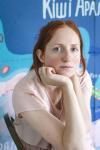
Director: Katerina Suvorova, Producer: Sain Gabdullin, Stephan Grobe, Anna Vilgelmi,
Script: Katerina Suvorova, DoP: Eugen Schlegel,
Editor: Azamat Altybassov, Sound: Igor Gladky, Music: Eldar Tagi
Katerina Suvorova (*1983 in the USSR) was raised in Kazakhstan/Almaty where she received her art education. She studied live action cinema at the High Courses of Script Writers and Directors in Moscow and at the Werner Herzog’s Rouge Film School in LA. Her short documentary “Two Bicycles” (2006) has won Critics Guild's Award at the "Kinoshok" film festival in Russia. The next film «Spare stronghold» (2007) was awarded with the National Russian Premium “St. Anna”. «W» (2008) received the Special Prize from Robert Bosch Stiftung at "Kinoshok" film festival in Russia. Katerina was a co-writer and editor of the Julian Assange’s film “Mediastan” which was the Best Documentary at the Gothenburg Independent Film Featival, 2014. At the moment, she is launching the production of her new documentary "About Life of Planets" dedicated to the abandoned observatory in the mountains of Almaty.
Competition Screening 4
Sunday, 8. October, 18pm
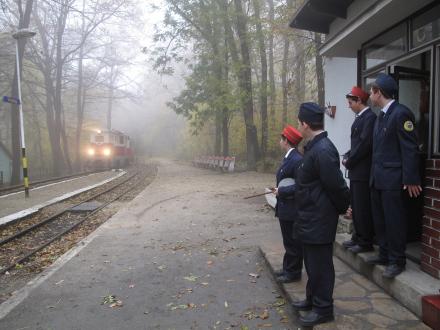
Reményvasút / Train to Adulthood / Zug der Hoffnung
Ukraine, United Kingdom / 2015 / Documentary / 79 min
OT Hungarian / UT English
The Children’s Railway built in 1948 in Budapest is an extraordinary facility. It is worked only by children. It is a place where children learn to take responsibility within a community, for themselves and for others. And it is, of all things, this remnant from the communist period that is a strong hold for a great number of children today. The Budapest twins Viktor and Carmen as well as Gergö are part of this community. They use old-fashioned switches, levers and phones, line up for the role-call and carefully note down arrivals and departures of the trains. For them, this railway is like a refuge, free of the daily troubles of the family, a safe harbour in a community. But at the same time this is a film about growing up. It is a sensitive portrait of the three protagonists, who at a very early stage have to take responsibility for many things in their families as well. In very calm pictures the film contrasts the all too beautiful railway romanticism with the everyday problems of two families in Hungary today.
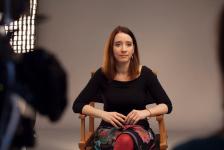
Director: Klára Trencsényi, Producer: Julianna Ugrin,
Script: Klára Trencsényi, DoP: Márton Vízkelety, Klára Trencsényi,
Editor: Judit Czakó, Sound: Rudolf Várhegyi, Music: Andor Sperling
Klara Trencsenyi (*1975) is a freelance director and cinematographer doing creative and social documentaries. In 2005 she graduated from the Hungarian Film Academy, Budapest as Director of Photography. She directed two mid-length documentaries (A Chance, 2007 and Birds Way, 2009), and a short documentary (3Weddings – Elena&Leo, 2009), and has worked in various international productions as cinematographer, with Dutch, American and Hungarian directors. She has done extensive social and voluntary work with Roma and Irish travelers and worked as photographer and journalist in Kosovo, Ukraine and Romania. In 2010 she organized the first creative documentary workshop and pitching forum in Hungary, myDEER 2010. She is currently working on two feature-length creative documentaries.
Competition Screening 7
Monday, 9. October, 20pm

MIRR / The Field / Das Feld
Cambodia / 2017 / Documentary / 90 min
OT Cambodian / UT English
In most countries, the ownership of land is laid down as a citizen’s right nowadays. Anyone who just relies on presciptive right is bad off when new profit drives enter the scene. This bitter experience is also made by Binchey in the north of Cambodia, who is driven from his fields with his family, like many of his neighbours. They all had to make space for a big plantation and face the loss of their property, powerless and speechless. How to make a living in future? Where should they go and grow something? Binchey is searching for free soil, others end up in agony. Director Mehdi Sahebi has decided to observe these desperate people not just in their hard situation. Together with the villagers he develops a simple script making the people concerned into protagonists of their fate. He shows the arguments among the villagers about their participation in such a project and which aspects should be included or not. Is alcoholism part of what is to be shown? And the challenge of learning to read and write, does it matter here? And acting it all out again – will they be able to do that? Thus, an unusual film is created telling the dramatic reality of land robbery as well as giving people the opportunity to express themselves. At the end they watch the film together. Does it catch what they want to say and to show?
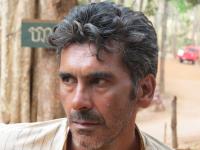
Director: Mehdi Sahebi, Producer: Marcel Derek Ramsay,
Script: Mehdi Sahebi, Esther Leemann, DoP: Mehdi Sahebi,
Editor: Mehdi Sahebi, Sound: Mehdi Sahebi, Music: 0
Mehdi Sahebi wurde 1963 in Mashhad, Iran geboren. Seit 1983 lebt er in der Schweiz, wo er Ethnologie, Geschichte und internationales Recht an der Züricher Universität studierte. 2006 schloss er die Universität mit dem Doktortitel (PhD) ab.Ein Jahr später arbeitete er als Gastlektor für Design und Kunst am Videoinstitut der Hochschule Luzern. 2008 war er akademischer Assistent für visuelle Anthropologie beim ethnographischen Museum der Universität Zürich. Momentan arbeitet er als Autor, Regisseur und Filmproduzent.
Competition Screening 8
Tuesday, 10. October, 18pm
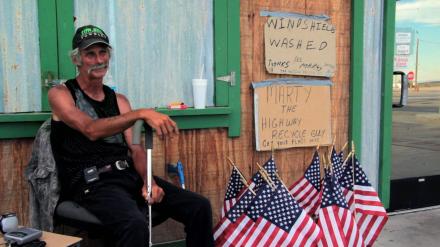
Chasing Houses / Häuser Jagen
Germany / 2017 / Documentary / 60 min
OT English / UT German
What the US-American highway leads to, this film shows by telling us about mobile homes and their inhabitants. Beginning like an opulent road movie, it soon branches out showing the fates of people whose lives are determined by the search for a home, for belonging somewhere, and the American dream. Thus it creates a gross panorama between a deeply rooted nomadic attitude and an often very hard life on the edge of homelessness. Meeting a former Las Vegas showgirl, a desert hermit, a Navajo couple and a follower of the Tea Party gives us a view at hopes, the loss of perspective and sharp class conflicts. The vastness of the West is omnipresent, but the film also looks into recess areas that people built with a lot of trouble and that they seek shelter in. The humour and fearlessness they demonstrate in this gives the film its special attraction.

Director: Justin Time, Producer: Justin Time,
Script: Justin Time, DoP: Stefan Auch, Zebediah Smith, Justin Time,
Editor: Sebastian Winkels, Sound: Manuela Schininá, Brooke Trezise, Nicolas J. Little, Music: Isabel Janke, Riders in the Sky
Justin Time was a stone mason who became an artist and a film maker. After his vocational training he took to the road for three years, a time that he now calls the period of his basic training as a doc film maker. He studied Sculpture in Berlin Weißensee, did Urban Studies in San Francisco and is now a member of the self-organized film school filmArche in Berlin.His works are subtle anthropological studies of seemingly normal phenomena which open the view at something different.
Competition Screening 11
Wednesday, 11. October, 20pm
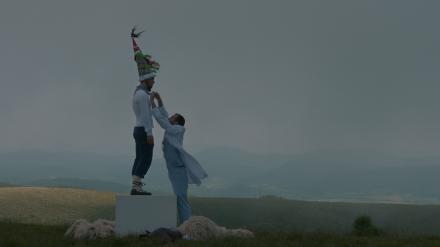
Oskara
Spain / 2017 / Documentary / 72 min
OT Basque / UT English
The Catalanian choreographer Marcos Morau produced Oskara together with the Basque dance company Kukai. The film shows the creative process of getting the piece done, in which two choreographic worlds merge with each other. There is the traditional Basque dance of Kukai on the one hand, and the modern view of Marcos Morau on the other. The film raises a number of questions: What is my identity? Is it given by Creation, by tradition or by history? What are the relations between landscape, culture, language, religion and tradition? To answer these questions, the film touches various fields of Basque culture. Answers ar given by the protagonists in a number of different languages: French, Spanish, Basque and Katalan. The main form of expression, however, is the dance, which takes up traditional elements of Basque culture and, through Morau’s production, presents them in wonderful poetic pictures.
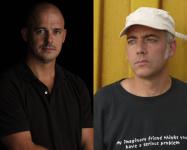
Director: Pablo Iraburu and Iñaki Alforja, Producer: Itziar García Zubiri,
Script: Pablo Iraburu and Iñaki Alforja, DoP: Iñaki Alforja,
Editor: Migueltxo Molina and Pablo Iraburu, Sound: Miguel García and Santiago Londoño, Music: Xabier Erkizia
Director Pablo Iraburu is the founder and creative director of Arena Comunicación Audiovisual. He co-directed the films Nomadak TX, Pura Vida/The Ridge, Walls, District Zero and many other documentaries, all together with Itziar Garcia and the Arena’s team. Apart from his documentary maker facet, Iraburu produces audio-visual works for different museums, such as the National Archaeology Museum, video art, installations and video dance. Co-director Iñaki Alforja is an independent filmmaker. He has worked many times with Arena; he worked as camera operator in Nepal for Pura Vida/The Ridge. He specialized in documentaries, but also produced numerous different projects: adverts, corporate videos, films and music video clips. One of the largest projects in which he participated as a filmmaker was “Yasuní, genocide in the jungle”, a TV program broadcasted on Discovery Max.
Competition Screening 12
Thursday, 12. October, 18pm
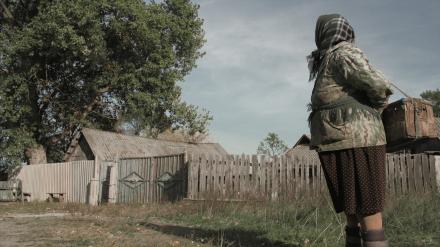
Roadside Radiation
Germany, Germany / 2016 / Documentary / 55 min
OT Russian / UT English
On April 26th 1986 reactor IV of the Tschernobyl nuclear power station exploded. Even today the catastrophe costs human lives, and the evacuated zone has become a symbol of decline and destruction. But the zone is not empty of life. The woods have taken back their original place and are overgrowing the adandoned settlements. Animal species that were almost extinct find a new habitat between overgrown houses and rusty arials. And even people did not leave the zone for good. Every day they cross its borders, they move and live in it. Many of them can’t and won’t give it up. Too deep are the loss and the longing for their former home. Others have found a pragmatic attitude which turns this dangerous place into an absurd element of their daily lives. For some, the zone is simply their place of work, for others a mythical area of exploration. Even “illegal tourists” come to live there, exploring their own past. We visit a woman who thinks the radiation can not harm her. The zone as a protected place?
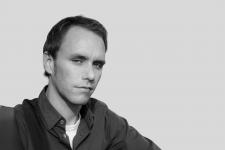
Director: Moritz Schulz, Producer: Michael Sladek,
Script: Elisabeth Fast, Moritz Schulz, DoP: Julian Springhart,
Editor: Aljoscha Hofmann, Sound: Wjatscheslaw Wagner, Music: Alva Noto, Gregor Pfeffer
Moritz Schulz lives in Freiburg and works as an author and director for the production company earlybirdpictures. In 2005 he moved out from Berlin to study history, science policy and Islamic Studies at the Albert-Ludwigs-University. Parallel to his studies, he started to run his own film projects. Later he worked as an author and co-director of the film-essay “Im Paradigma”. In 2012 he began editorial volunteer work at the regional TV station TV Südbaden, where he developed and implemented more LFK-funded program formats, including in particular “Zu Gast bei Freunden” and “Kneipentalk”. After completing his volunteer work he worked for various production companies, on documentary film projects (among others “37 Grad”), scenic projects (among others “Abschlussfilm HMS”) and numerous commercials.
Competition Screening 14
Friday, 13. October, 16pm
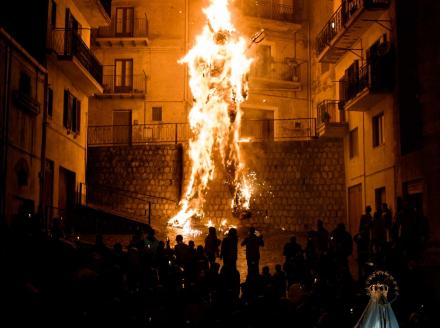
Triokala
Italy, Italia / 2015 / Documentary / 75 min
OT Italian / UT -
Triokala is the ancient Greek name of Caltabellotta, a small village deep in the south of Sicily. The “three beautiful things” that the name refers to are the fruitful ground, the great amount of sweet water, and the fact that – due to its position on the top of the mountain – the place is invincible. In the course of the centuries, the knowledge of the indispensable connection between humans and nature seems to have disappeared. But perhaps it has just been blocked, just like the fog hides the land. We are looking at today’s inhabitants, at the essence and the variety of the old rituals they have retained, and we discover traces of old knowledge. The Sicilian writer and film maker Leandro Picarella has made a film without many words, a film based on the art of leaving things out. The result is an invitation to meditate on the secret magic of a place. Is the knowledge deeply grounded on nature, and can it be retrieved at any time?

Director: Leandro Picarella, Producer: Centro Sperimentale di Cinematografia Production,
Script: Leandro Picarella, DoP: Andrea José Di Pasquale,
Editor: Leandro Picarella, Sound: Jacopo Ferrara, Marco Falloni, Alessandro Quaglio, Music: Fratelli Mancuso
Leandro Picarella (*1984 in Agrigento) studied his Bachelor at University of Palermo, graduating in Literature and Philosophy. In 2006 he moved to Florence to take a Master in Movie Studies and Italian Theatre Literature. Between 2010 and 2012 he realized his first short movies: "Cattedrale", "Desnudez". His short movie "Scolpire il tempo" participated at 66th Festival of Locarno. The biographical movie "Dio delle zecche: storia di Danilo Dolci in Sicilia" traveled all over Italy within festivals. Since summer 2014 he has been organizing a Movie festival in the Valley of the Temples, set in Agrigento, Sicily. Triokala, the three gifts of nature (2015) is his first movie. Winner of many awards in Italy and abroad, the film received the Special Mention Jury Prize "Regard Neuf" at Visions du Réel 2016, International Cinema Festival in Nyon, Swiss.
Competition Screening 16
Friday, 13. October, 20pm
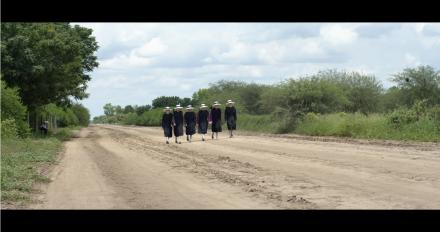
Ohne diese Welt / Without This World /
Argentina, Deutschland / 2017 / Documentary / 115 min
OT Spanish / UT English
In the north of Argentina about 700 Mennonites of German origins live their lives like in the 18th century. Instead of cars they use horse-drawn carriages, their only school books are the Bible and the catechism. Electric currant, telephones or radios are forbidden by their religion. Life is not supposed to be comfortable. They live a pious life for God instead, and they hope their children will continue on this path. The Mennonites want to reject the influence of “the world”, which for them is everything outside their religious community, as far as possible. That is why they moved here 18 years ago from Mexico. For many generations they have been forced again and again to move to different places in order to realise their ideas of life. But is it really possible to withdraw from the changes in the world? What about the young people and their needs? Are they ready for a life “in sadness”? Nora Fingscheidt explores the life of a quiet community between withdrawal and change, which has not achieved a level of social acceptance like the Amish People in the U.S.A. Her film is the result of an honest talk with people who live in a different way.
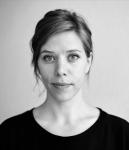
Director: Nora Fingscheidt, Producer: kineo Filmproduktion, Peter Hartwig, Filmakademie Baden Württemberg,
Script: Nora Fingscheidt, DoP: Yunus Roy Imer,
Editor: Stephan Bechinger, Sound: Bernhard Köpke, Music: JohnGürtler & NatalieSandtorv
Nora Fingscheidt (*1983) spent her school time in Braunschweig and Argentina, and after that she became actice in the self-organised film school filmArche e.V. in Berlin. She took a parallel training course as a theatrical director and worked as an assistant director for the feature fim “Goethe!” Since 2008 she has been studying scenic direction at the Film Academy Baden-Württemberg. The documentary “Without This World” is her graduation achievement.


